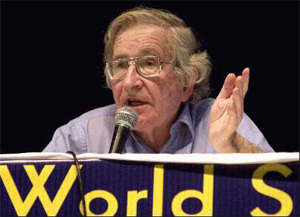World Social Forum set to meet strengthened by crisis
 Sao Paulo - The World Social Forum is set to meet starting Tuesday in the northeastern Brazilian city of Belem, as the gathering gets renewed strength and meaning from the ongoing global financial and economic crisis.
Sao Paulo - The World Social Forum is set to meet starting Tuesday in the northeastern Brazilian city of Belem, as the gathering gets renewed strength and meaning from the ongoing global financial and economic crisis.
This is the ninth edition of the forum, a self-declared "alternative" to the simultaneous World Economic Forum in Davos, Switzerland.
"The global financial crisis is an opportunity for us, who were born to oppose that neoliberal globalization that is now crumbling. It is a chance to show that something else is possible," Candido Grybowski, one of the organizers of the World Social Forum, told Deutsche Presse-Agentur dpa in an interview.
Presidents Evo Morales of Bolivia, Hugo Chavez of Venezuela, and Luiz Inacio Lula da Silva of Brazil have confirmed their attendance at debates set to take place Tuesday to Sunday.
The organizers did not rule out the presence of other South American leaders, like Michelle Bachelet of Chile, Rafael Correa of Ecuador and Fernando Lugo of Paraguay.
In any case, there will be many fewer leaders in the Amazonian city of Belem than the more than 40 that were expected in Davos.
"Heads of state have never been as lost as now. They are as lost as a peasant in the Amazonian forest," said Grybowski, who heads the Brazilian Institute for Socio-Economic Analysis (IBASE).
"Perhaps the only one of them who is a little bit lucid is (new US President Barack) Obama, who at least has a discourse that falls out of the usual line," he stressed.
To bring home the point, Grybowski wondered what France's Nicolas Sarkozy, Italy's Silvio Berlusconi or Germany's Angela Merkel may have to say.
"They are all responsible for the crisis, both the leaders and especially the companies and the media who will be there," the expert said.
He graphically defined the Davos forum as "the free university of the large speculative capital, of the bankers."
Grybowski added that the measures that have been adopted so far to counter the crisis have focused on rescuing companies and banks.
"We always advocated state regulation (of the financial system), but so far things are only being done to save the system, not to change that system that is a castle of cards, a casino."
In such a setting, the World Social Forum gains weight as a space for the emergence of new ideas and to confirm its own precept that "a different world is possible" beyond "what the owners of the world say it is," he said.
Grybowski said that 120,000 people are set to gather at the forum in Belem, along with hundreds of non-governmental organizations. There are set to be 2,600 activities to debate not just the financial and economic crisis, but also the energy crisis, the food crisis and climate change.
The World Social Forum was born in the southern Brazilian city of Porto Alegre in 2001, and it also took place in that city in 2002, 2003 and 2005. India hosted it in 2004, while Venezuela did so in 2006 and Kenya in 2007. In 2008 there was no one single site, but the forum was held simultaneously in 82 different countries. (dpa)